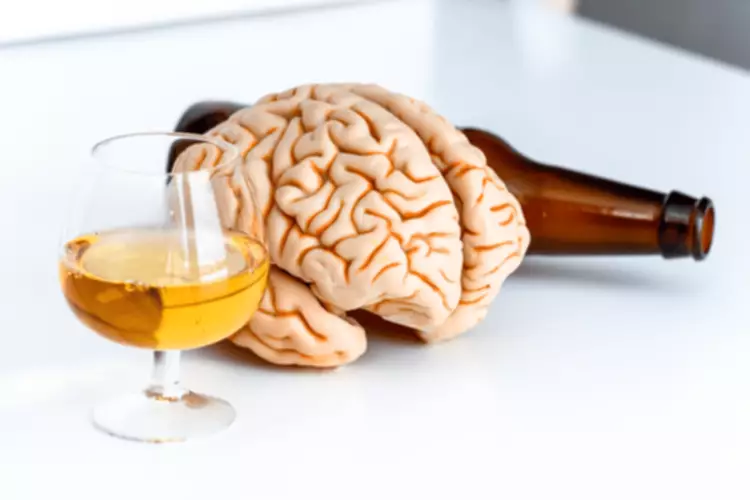
After discharge from treatment, follow-up aftercare is vital for successful long-term recovery. As important as trusted support is during detoxification and your treatment program, it is equally important after treatment. Addicted individuals often express feelings of anxiety, fear, and stress.

What Are Alcohol Shakes Causes & Effects?

We understand the challenges you or a loved one might face and are committed to guiding you through the recovery process with compassion, expertise, and professionalism. Alcohol shakes and tremors are involuntary muscle movements that occur due to the sudden cessation or reduction of alcohol consumption after an extended period of heavy drinking. Shakes are a primary symptom of alcohol withdrawal and can begin within 5-10 hours of your last drink, lasting up to 72 hours. Alcohol detox shakes, a common symptom of alcohol withdrawal, can be prevented through several proactive strategies. To mitigate the risk of experiencing these tremors, individuals are encouraged to engage in healthy lifestyle choices and consider the moderation or complete abstinence of alcohol consumption. For more severe cases, inpatient residential treatment programs may be necessary.
SEVERE OR COMPLICATED SYMPTOMS (CIWA-AR SCORE OF 19 OR MORE)
To determine if tremors experienced during alcohol detox are caused by DTs or a typical AWS, it’s necessary to understand the alcohol withdrawal timeline. Most people with mild to moderate alcohol withdrawal don’t need treatment in a hospital. But severe or complicated alcohol withdrawal can result in lengthy hospital stays and even time in the intensive care unit (ICU). Healthcare providers typically prescribe short-term https://ecosoberhouse.com/article/alcohol-and-aging-does-alcohol-make-you-look-older/ medications to relieve the symptoms of mild to moderate alcohol withdrawal. While alcoholic shakes may be a common condition for those struggling with alcohol addiction or long-term alcohol use, they’re not something to be taken lightly. If friends, family and other loved ones have commented on your shakes or tremors, or expressed concern about your use of alcohol, it may be time to consider getting help.
Social Support and Treatment Programs
This article discusses alcohol withdrawal, its symptoms, and potential complications. It also provides an overview of the alcohol withdrawal timeline process and when to discuss your drinking with your healthcare provider. Alcohol use disorder isn’t a condition that happens for just one reason. Family history, mental health conditions and many other factors can play a role. If you’re concerned about your risks for developing alcohol use disorder, it’s a good idea to talk to a healthcare provider.
It’s difficult to predict who will and who won’t experience alcohol withdrawal — and how severe it will be. Some people experience prolonged withdrawal symptoms, like insomnia and mood changes, that can last for weeks or months. Go to the nearest how to stop tremors from alcohol emergency room or call 911 (or your local emergency service number) if you or a loved one has any concerning symptoms of alcohol withdrawal. Alcohol withdrawal can range from very mild symptoms to a severe form, known as delirium tremens.
Factors Influencing Shaking After Drinking
Wernicke-Korsakoff syndrome is predominantly diagnosed in alcoholics with a severe thiamine deficiency due to malnutrition. Signs of Wernicke-Korsakoff include loss of memory, tremors/alcohol shakes, and inability to walk without assistance. An involuntary shaking of the hands, legs, or other parts of the body, tremors are caused by a temporary or permanent impairment in the cerebellum and motor cortex. Unless these two brain areas are functioning properly, a person may experience tremors or even seizures they cannot control. Tremors often affect people suffering from neurological disorders, like muscular dystrophy or cerebral palsy.
Gaining a deeper understanding of these symptoms — their origins, their implications, and effective management strategies — is crucial. This knowledge not only prepares you for what lies ahead but also paves the way for a more manageable and less daunting journey through this critical stage of recovery. This article aims not just to enlighten you about the shakes but to offer a comprehensive view of the entire alcohol withdrawal process. It’s an intricate, deeply personal experience, yet one that resonates with millions worldwide. Before you decide to go through alcohol withdrawal, write yourself a letter and keep it nearby for quick reference.
Stress Management
- That’s why some alcoholics wake up shaky in the morning and need a drink to feel steady.
- Clonidine suppresses central nervous system overactivity to minimize the severity of withdrawal symptoms and help patients complete the detoxification process.
- In the rare event that your tremors progress into something worse and far more dangerous, medical staff will be ready to intervene and provide life-saving care.
- Addiction tends to make everything else in life seem less enjoyable.
Leave a Reply